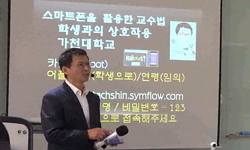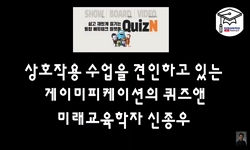The “Separate Collection System for Transparent PET Bottles,” proposed by the Ministry of Environment in 2020, has been criticized for failing to integrate into daily life even after four years of implementation, with Jeju showing similar challeng...
http://chineseinput.net/에서 pinyin(병음)방식으로 중국어를 변환할 수 있습니다.
변환된 중국어를 복사하여 사용하시면 됩니다.
- 中文 을 입력하시려면 zhongwen을 입력하시고 space를누르시면됩니다.
- 北京 을 입력하시려면 beijing을 입력하시고 space를 누르시면 됩니다.

‘투명 페트병 별도 분리배출제’는 왜 공중의제가되지 못했나? : 제주지역 사례를 중심으로 = Why Did the ‘Separate Disposal of Transparent PET Bottles’ Fail to Become a Public Agenda? : Focusing on the Jeju Region Case
한글로보기https://www.riss.kr/link?id=A109440782
- 저자
- 발행기관
- 학술지명
- 권호사항
-
발행연도
2024
-
작성언어
Korean
- 주제어
-
등재정보
KCI등재
-
자료형태
학술저널
- 발행기관 URL
-
수록면
390-431(42쪽)
- DOI식별코드
- 제공처
-
0
상세조회 -
0
다운로드
부가정보
다국어 초록 (Multilingual Abstract)
The “Separate Collection System for Transparent PET Bottles,” proposed by the Ministry of Environment in 2020, has been criticized for failing to integrate into daily life even after four years of implementation, with Jeju showing similar challenges. This study examines why the policy has not become a public agenda in Jeju. To this end, media reports on the policy were analyzed, and interviews were conducted with government, media, and public representatives. The analysis revealed that most media reports focused on explaining the policy, with relatively few addressing its implementation outcomes or promoting public participation. About 80% of the information sources relied on the Jeju provincial government, and critical articles accounted for only 14.7%. Interview results indicated that low public awareness, passive media reporting, and insufficient government promotion strategies were the main factors hindering the policy’s establishment as a public agenda. In particular, the lack of agenda-setting and maintenance by the media was identified as a significant barrier to policy dissemination. Respondents emphasized that sustained promotion, public education, and the media’s role in “agenda keeping” are essential for the successful adoption of the policy. This study highlights that organic interaction between policy, media, and the public is crucial to enhancing policy effectiveness.
동일학술지(권/호) 다른 논문
-
<옥천신문> 지면 변화 추적 : 보도 형태와 내용 분석을 중심으로
- 한국지역언론학회
- 이승환
- 2024
- KCI등재
-
지역 미디어와 공중 의제 전이의 상관성 연구 : 제주 제2공항 건설 이슈와 삶의 관련성
- 한국지역언론학회
- 이정원
- 2024
- KCI등재
-
- 한국지역언론학회
- 강승화
- 2024
- KCI등재
-
과학기술 보도의 대중화와 활성화를 위한 탐색적 연구 : 과학 전문가 심층 인터뷰를 중심으로
- 한국지역언론학회
- 박동일
- 2024
- KCI등재




 KCI
KCI KISS
KISS






